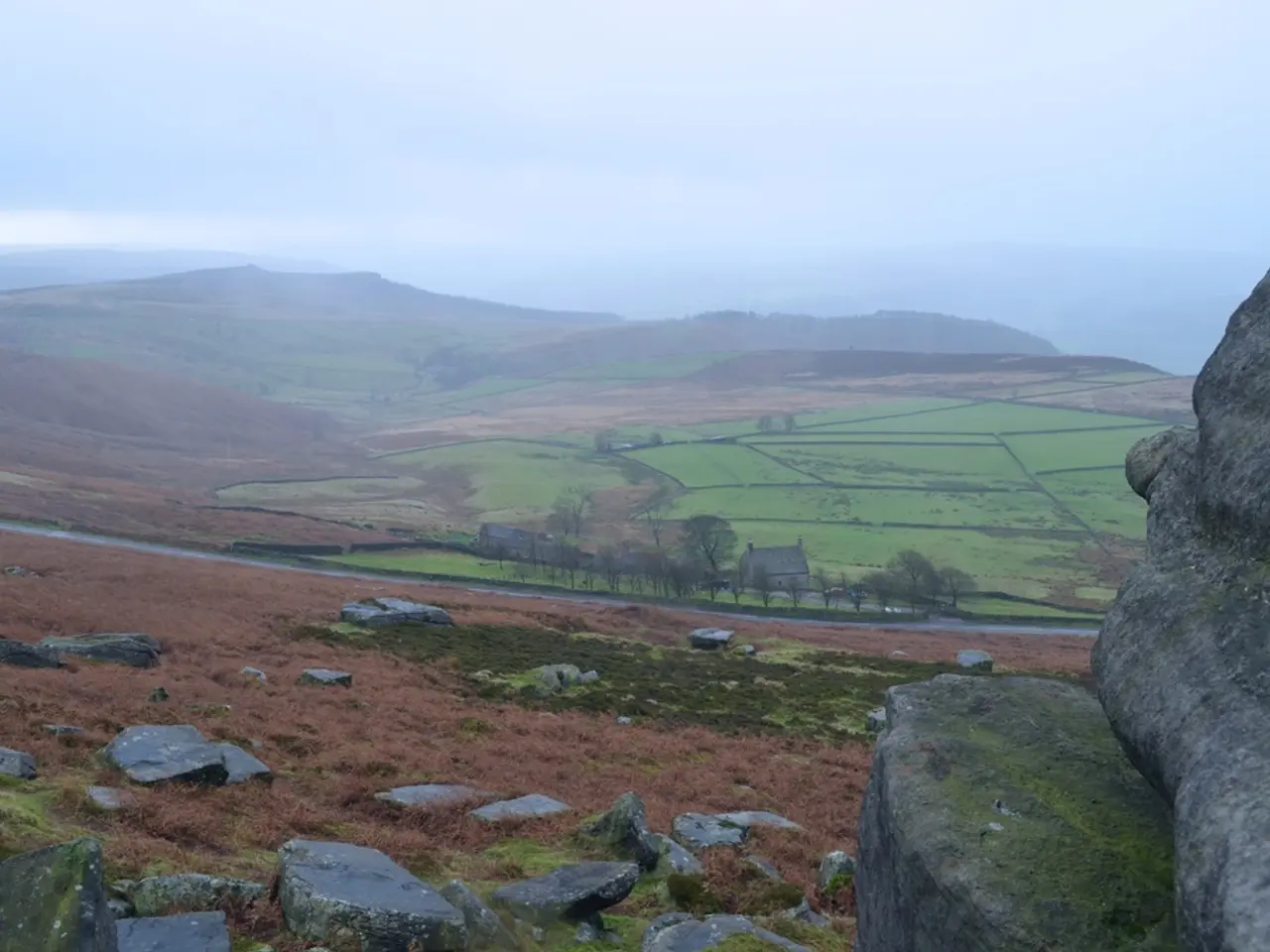Future Trends in Tourism: Where Are We Headed?
In the realm of global tourism, the pursuit of sustainability is a pressing concern. The sector faces numerous challenges, from managing its significant environmental footprint to alleviating pressure on natural ecosystems and addressing labor shortages and skills gaps within the workforce [1].
One of the most pressing environmental issues is the sector's carbon footprint, with greenhouse gas emissions and waste generation posing significant threats. Tourist waste could reach an alarming 205 million tonnes annually by 2034 [1]. Over tourism, a phenomenon where destinations are overwhelmed by visitors, also remains a key social challenge, as it impacts the needs of tourists, local communities, and ecosystems [2].
Looking ahead, the future of tourism seems to be leaning towards regenerative tourism, a concept that not only minimizes impact but actively restores natural systems [3]. Tourists are increasingly favouring eco-certified, low-impact destinations and travel modes like high-speed rail [3]. Technology-driven personalization and innovation, including AI and AR/VR, will enhance sustainable travel experiences, but may widen digital divides and polarize the market between luxury and mid-market travelers [2][3].
The growth of "high-value, low volume" tourism and government incentives promoting carbon-neutral travel will shape market expansion, while community-based tourism and authentic local immersion will become increasingly important [4][5].
However, sustainable tourism's impact on low-income individuals can be mixed. On one hand, it aims to empower local communities and Small and Medium Enterprises (SMEs), potentially supporting local capacity-building and economic benefits such as green jobs [1][3]. On the other hand, trends like dynamic pricing and polarization in tourism markets may threaten affordability and accessibility for mid- and low-income travelers, leading to exclusion from some sustainable travel experiences [3].
Moreover, destinations reliant on tourism may face economic disruption if sustainable practices reduce overall visitor numbers or shift demand towards higher-spending tourists, which could negatively affect incomes in low-income, tourism-dependent communities [1][3].
In conclusion, sustainable tourism strives for environmental and social balance but must carefully address affordability and equitable benefits to avoid disadvantaging low-income individuals both as travelers and as members of host communities. Collaborative, inclusive approaches and targeted support for local economies are critical to ensuring that sustainability advances do not inadvertently create new inequities [1][3][4].
Meanwhile, the global tourism industry is still reeling from the impact of the Corona pandemic. By the end of April 2021, the industry had lost a staggering 175 billion euros [6]. Many tourism businesses have filed for insolvency due to the crisis [7]. Dr. Markus Heller, a thought leader in the travel and tourism industry, is working with global corporations, medium-sized travel companies, and public clients such as the Federal Ministry of Economics (BMWi) to navigate these challenges [8].
Dr. Heller, who studied at the universities of Vienna, Munich, and St. Gallen and has over 25 years of experience in consulting, is the managing partner of the corporate consulting firm Dr. Fried & Partner, which specializes in the tourism industry, and the founder of the analysis company Travel Data + Analytics GmbH [9]. His expertise lies in the development of future-oriented concepts and business models for the travel and tourism industry [10]. Dr. Heller provides advice to companies on investment and transaction decisions related to tourism [11].
The podcast "Tourism in Transition" features discussions with Dr. Markus Heller, delving into current challenges facing the tourism industry, preparation strategies, and the concept of "bleisure" travel [12]. The first part of the podcast discusses the current challenges facing the industry, how it is preparing for them, and what "bleisure" travel is all about [13].
As the tourism industry navigates the challenges posed by the Corona pandemic, digitalization, and the increasing importance of sustainability, the need for experts like Dr. Markus Heller becomes increasingly apparent [14]. The current situation in the tourism industry is relaxing but not over yet [15].
In the quest for sustainable tourism, the finance sector plays a crucial role in funding initiatives that promote regenerative tourism and support local communities, including low-income individuals [3, 10]. As travelers increasingly demand eco-certified and low-impact destinations, businesses and government incentives need to ensure affordability and accessibility for all income groups, fostering a lifestyle that balances economic growth with environmental and social responsibility [3].




